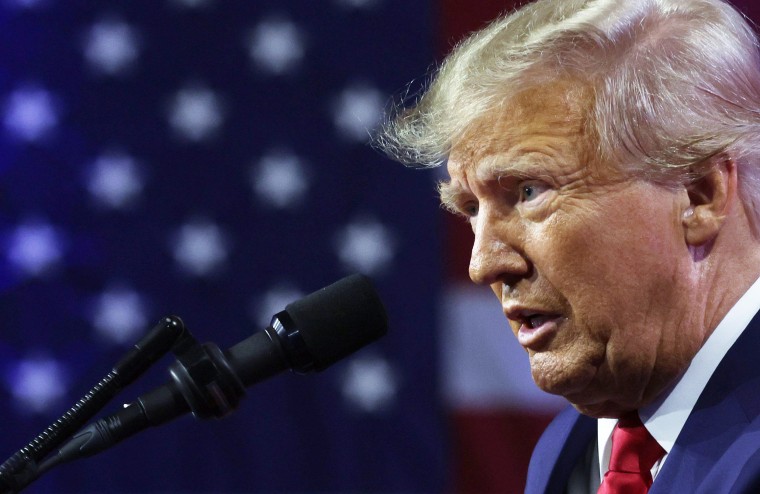There is an increasing amount of buzz surrounding the possibility of former President Donald Trump facing criminal charges in the near future. The New York Times reports that the Manhattan district attorney’s office has “recently signaled” to Trump’s lawyers that he could face charges for paying hush money to a porn star who alleges she had an affair with him. And as Chuck Rosenberg, a former U.S. attorney and a legal analyst for NBC News, pointed out, Trump’s invitation to testify before a grand jury in New York this week suggests prosecutors are “seriously considering charges.”
This is the kind of news that thrills many Americans who are eager to see Trump face any kind of legal consequences for his many abuses of power and seemingly illicit behavior in office. But they shouldn’t get too excited. Neither an indictment nor a conviction would necessarily kick Trump out of the race. And there’s little reason to think that if he were to be charged and convicted, he would pay a substantial penalty among Republicans as he seeks his third presidential nomination.
It’s hard to see how controversy stemming from criminal charges would cause Trump’s support in the Republican base to plummet.
The Constitution’s requirements for eligibility to run for president don’t say anything about a candidate’s criminal record or legal status. There’s even historical precedent for a presidential candidate running and winning votes while in prison. It is worth noting, however, as my colleague Jordan Rubin has pointed out, that some unprecedented complications could arise depending on what Trump might get charged with — it seems that certain convictions related to the Jan. 6 insurrection could conflict with the 14th Amendment. But overall there’s nothing inherently disqualifying about Trump’s getting in trouble in the criminal justice system.
Shame certainly wouldn’t inhibit him. Trump said at the Conservative Political Action Conference this month that he has every intention of running even if he’s indicted — and that he thinks being charged could even help him: “I wouldn’t even think about leaving,” Trump told reporters at the conference. “Probably it will enhance my numbers.” Trump’s confidence in his ability to defy expectations is unsurprising. But there may be some truth to it.
At the very least, it’s hard to see how controversy stemming from criminal charges would cause Trump’s support in the Republican base to plummet. Since he took office in January 2017, Trump has never won the approval of the majority of Americans, but it’s also true that nothing he’s done has ever dropped him much below his roughly 40% approval floor. Trump’s followers have stuck with him through countless scandals and the crises, and didn't defect after he engaged in many legally and socially questionable acts, including enriching himself using his office, abusing presidential power by trying to use allies for political dirt and trying to overthrow his own government. Trump was impeached twice and the Trump Organization was fined $1.6 million for criminal tax fraud and other crimes in January, and his followers didn’t bat an eye, polls show.
The stink of criminality doesn’t stick to Trump in large part because his political identity revolves around the idea that the entire “establishment” — including the criminal justice system — is corrupt. Investigations, indictments and court judgments might have legal consequences, but they don’t have political consequences among people who don’t respect the meaning of their sanctions. And much of Trump’s theory of change, from the way he abused his power as president to gain advantage over his political opponents to prompting a mob to storm the U.S. Capitol, openly seeks to operate outside the conventions of law and the norms of democratic governance. If Trump’s followers believe the organs of the state aren’t to be trusted, then the state’s attempts to hold him accountable for misconduct could intensify their mobilization on his behalf, as they see themselves as foot soldiers fighting a deep-state conspiracy.
Polling indicates that there are some Republicans ready to move on from the Trump show and opt for an alternative MAGA candidate like Florida Gov. Ron DeSantis. It’s possible he could displace Trump as the front-runner. But it’s hard to imagine a mass defection from Trump to DeSantis on the basis of some kind of awakening sparked by Trump indictments. With Trump, the impropriety is the point.

